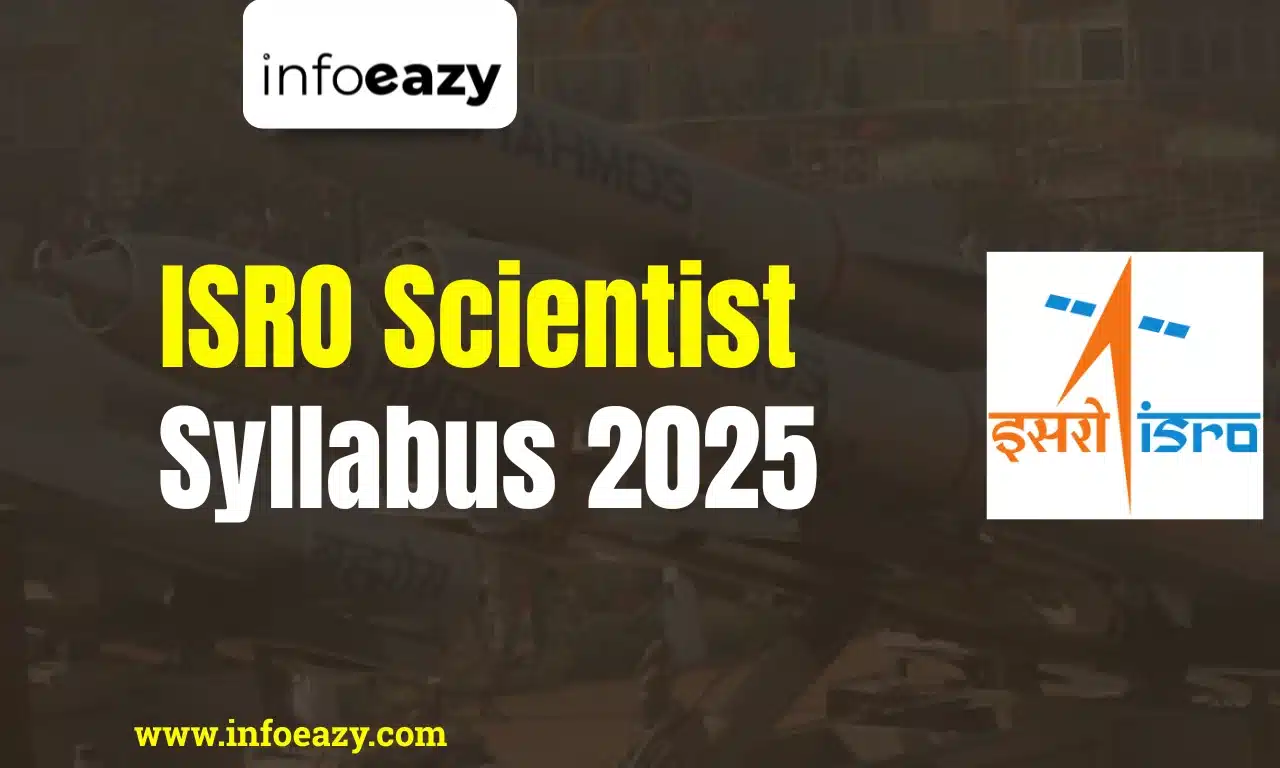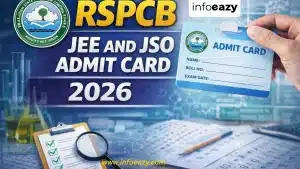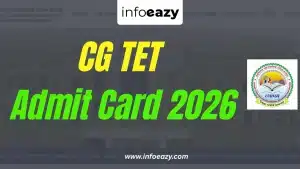The Indian Space Research Organisation (ISRO) has announced the recruitment of 320 Scientist/Engineer posts across various disciplines, including Mechanical, Computer Science, and Electronics. Aspirants preparing for this highly competitive exam must be well-versed with the ISRO Scientist Syllabus 2025 and exam pattern to ensure a strategic and comprehensive preparation.
In this article, we have covered the detailed subject-wise ISRO Scientist Syllabus 2025 along with the updated exam pattern, selection process, and minimum qualifying marks for each stage.
ISRO Scientist Syllabus 2025 Overview
The Indian Space Research Organisation (ISRO) has released a notification for 320 Scientist/Engineer vacancies. Given the extensive nature of the engineering syllabus, which constitutes nearly 80% of the exam weightage, it is crucial for candidates to thoroughly complete the ISRO Scientist Syllabus 2025 well in advance of the exam date.Candidates must refer the table below to get the ISRO Scientist Syllabus 2025 Overview:
| ISRO Scientist Syllabus 2025 Overview | |
| Conducting Body | Indian Space Research Organisation (ISRO) |
| Post Name | Scientist Engineer SC Level |
| Disciplines | Mechanical, Computer Science, and Electronics |
| Total Questions | 95 |
| Total Marks | 100 |
| Duration | 2 hours |
| Negative Marking | ⅓ |
| Selection Process | Written Exam and Interview |
| Official Website | www.isro.gov.in |
ISRO Scientist Selection Process 2025
The Indian Space Research Organisation (ISRO) conducts a competitive ISRO Scientist Selection Process 2025 to recruit talented individuals for the post of Scientist/Engineer across various disciplines. It comprises two key stages that assess both academic proficiency and practical competence, ensuring only the most capable candidates are chosen for this challenging role.
| ISRO Scientist Selection Process 2025 | |
| Stage | Description |
| Stage 1: Written Test | – Questions based on Engineering Discipline- Includes General Aptitude and Reasoning |
| Stage 2: Interview | – Only shortlisted candidates from the written test are called for the interview- Evaluates technical knowledge, communication skills, and academic background |
| Final Selection | Based on 50:50 weightage of Written Test and Interview scores |
ISRO Scientist Exam Pattern 2025
ISRO Scientist Exam Pattern 2025 is essential for effective preparation. It helps candidates familiarize themselves with the structure of the paper, including the number of questions, subject-wise weightage, time allocation, and marking scheme. The following section provides a detailed breakdown of the ISRO Scientist Exam Pattern 2025.
| ISRO Scientist Exam Pattern 2025 | ||||
| Part | Subject | Questions | Marks | Duration |
| Part A | Engineering Discipline | 80 | 80 | 2 Hours |
| Part B | Aptitude and Reasoning | 15 | 20 | |
| Total | 95 | 100 | ||
ISRO Scientist Minimum Qualifying Marks
Analyzing the ISRO Scientist Minimum Qualifying Marks also allows aspirants to get insights into negative marking and qualifying criteria, Candidates can approach the exam with better time management and confidence. Below in the table we have provided the details related to ISRO Scientist Minimum Qualifying Marks:
| Minimum Qualifying Marks | |||
| Category | Written Exam (Each Part) | Interview (Out of 100) | Aggregate |
| Unreserved Candidates | 50% | 50 | 60% |
| Reserved Candidates (PwBD) | 40% | 40 | 50% |
ISRO Scientist Syllabus 2025- Mechanical Engineering
The ISRO Scientist Syllabus 2025 Mechanical Engineering outlines the key topics candidates must master to qualify for one of India’s most prestigious scientific roles. It covers core subjects like Applied Mechanics, Thermal Sciences, Manufacturing, and Fluid Mechanics. A clear understanding of the syllabus helps aspirants focus their preparation effectively and increase their chances of success in the ISRO Scientist selection process.
| ISRO Scientist Syllabus 2025- Mechanical Engineering | |
| Section | Topics Covered |
| Materials, Manufacturing & Industrial Engineering | – Casting, Forming & Joining: Types of castings, molds, solidification, forming processes (forging, rolling, extrusion, drawing), welding, brazing, powder metallurgy. – Machining & Tool Operations: Cutting tools, tool wear, CNC, jigs & fixtures, non-traditional machining. – Metrology & Inspection: Limits, fits, measurements, CMM. – Computer Integrated Manufacturing: CAD/CAM basics, additive manufacturing. – Production Planning & Control: Forecasting, MRP, lean manufacturing. – Inventory Control: Deterministic models, safety stock. – Operations Research: LP, simplex, queuing, PERT/CPM. – Engineering Materials: Structures, heat treatment, phase diagrams. |
| Applied Mechanics and Design | – Theory of Machines: Kinematic & dynamic analysis, gears, governors, gyroscope. – Vibrations: Free/forced vibrations, damping, critical speed. – Machine Design: Static/dynamic loading, fatigue, design of joints, bearings, brakes, clutches. – Engineering Mechanics: Free-body diagrams, friction, trusses, dynamics, virtual work, Lagrange’s equations. – Mechanics of Materials: Stress-strain, bending, torsion, deflection, thermal stress, testing of materials. |
| Fluid Mechanics & Thermal Sciences | – Thermodynamics: Laws, processes, property relations, availability. – Applications: I.C. Engines, refrigeration, psychrometry, turbines, gas cycles. – Fluid Mechanics: Statics, dynamics, continuity, Bernoulli, pipe flow, compressible flow. – Heat Transfer: Conduction, convection, radiation, heat exchangers, LMTD, NTU, thermal boundary layer. |
ISRO Scientist Syllabus 2025- Computer Science Engineering
The ISRO Scientist Syllabus 2025- Computer Science Engineering is designed to assess a candidate’s technical proficiency and problem-solving abilities. It covers vital subjects like Programming, Data Structures, Algorithms, Computer Networks, Operating Systems, Databases, and Theory of Computation. A thorough understanding of these topics is crucial for aspirants aiming to excel in the written exam and secure a position as a Scientist at ISRO.
| ISRO Scientist Syllabus 2025- Computer Science Engineering | |
| Section | Topics Covered |
| Electromagnetics | – Maxwell’s equations (differential & integral forms) – Boundary conditions, wave equation, Poynting vector – Plane wave properties: reflection, refraction, polarization – Transmission lines, impedance matching, Smith chart – Waveguides, optical fibers, antennas |
| Networks, Signals & Systems | – Node, mesh, Thevenin, Norton analysis – Phasors, complex power, time & frequency domain analysis – Fourier series, Fourier & Laplace transforms – Discrete-time signals: DTFT, DFT, z-transform – LTI systems: causality, stability, impulse response |
| Electronic Devices | – Energy bands, semiconductors – Carrier transport: diffusion, drift, recombination – PN junction, Zener diode, BJT, MOSFET, LED, photodiode, solar cell |
| Digital Circuits | – Binary and floating-point number systems – Boolean algebra, logic gates, K-map minimization – Flip-flops, FSMs, counters, shift registers – ADC, DAC, ROM, SRAM, DRAM – Computer organization basics, pipelining |
| Control Systems | – Feedback, block diagram, transfer function – Stability analysis: Routh, Nyquist, Bode, Root locus – Compensators: lag, lead, lag-lead – State-space modeling |
| Communications | – Random processes, power spectral density – Analog modulation/demodulation: AM, FM – Information theory: entropy, channel capacity – Digital comms: PCM, PSK, QAM, BER, Hamming codes |
| Analog Circuits | – Diode applications: clippers, clampers, rectifiers – BJT/MOSFET amplifiers: small-signal models – Op-amps: amplifiers, filters, oscillators, comparators |
ISRO Scientist Syllabus 2025- Electronics Engineering
The ISRO Scientist Syllabus 2025 for Electronics Engineering focuses on evaluating a candidate’s technical expertise across core subjects. It includes topics such as Electromagnetics, Electronic Devices, Analog and Digital Circuits, Control Systems, Signals and Systems, Communications, and Computer Organization. A strong grasp of these concepts is essential for success in the written exam and to qualify for further stages in the ISRO Scientist selection process.
| ISRO Scientist Syllabus 2025- Electronics Engineering | |
| Section | Topics Covered |
| Electromagnetics | – Maxwell’s equations (differential & integral forms) – Boundary conditions, wave equation, Poynting vector – Plane wave properties: reflection, refraction, polarization – Transmission lines, impedance matching, Smith chart – Waveguides, optical fibers, antennas |
| Networks, Signals & Systems | – Node, mesh, Thevenin, Norton analysis – Phasors, complex power, time & frequency domain analysis – Fourier series, Fourier & Laplace transforms – Discrete-time signals: DTFT, DFT, z-transform – LTI systems: causality, stability, impulse response |
| Electronic Devices | – Energy bands, semiconductors – Carrier transport: diffusion, drift, recombination – PN junction, Zener diode, BJT, MOSFET, LED, photodiode, solar cell |
| Digital Circuits | – Binary and floating-point number systems – Boolean algebra, logic gates, K-map minimization – Flip-flops, FSMs, counters, shift registers – ADC, DAC, ROM, SRAM, DRAM – Computer organization basics, pipelining |
| Control Systems | – Feedback, block diagram, transfer function – Stability analysis: Routh, Nyquist, Bode, Root locus – Compensators: lag, lead, lag-lead – State-space modeling |
| Communications | – Random processes, power spectral density – Analog modulation/demodulation: AM, FM – Information theory: entropy, channel capacity – Digital comms: PCM, PSK, QAM, BER, Hamming codes |
| Analog Circuits | – Diode applications: clippers, clampers, rectifiers – BJT/MOSFET amplifiers: small-signal models – Op-amps: amplifiers, filters, oscillators, comparators |
ISRO Scientist Syllabus 2025- General Aptitude & Reasoning
The ISRO Scientist Syllabus 2025- General Aptitude & Reasoning is designed to assess a candidate’s logical thinking, problem-solving ability, and numerical aptitude. It includes topics such as numerical reasoning, logical reasoning, abstract reasoning, diagrammatic reasoning, and deductive reasoning. Mastery of these areas is crucial for performing well in the written test and advancing in the ISRO Scientist Recruitment 2025..
| ISRO Scientist Syllabus 2025- General Aptitude & Reasoning | |
| Category | Topics Covered |
| Numerical Reasoning | – Number series, arithmetic problems, percentages – Averages, ratios, profit & loss, time & work |
| Logical Reasoning | – Syllogism, blood relations, seating arrangements – Coding-decoding, puzzles |
| Diagrammatic Reasoning | – Pattern recognition – Image sequences and transformations |
| Abstract Reasoning | – Analogies, classification – Series-based puzzles |
| Deductive Reasoning | – Statements & conclusions – Assumptions, arguments, cause-effect |
ISRO Scientist Syllabus 2025 FAQs
Q1. Will ISRO conduct an exam in 2025?+
Q2. What is the syllabus for the ISRO exam?+
Q3. What is the age limit for the ICRB exam 2025?+
Q4. Is ISRO tougher than the Gate?+
Q5. What is the 2025 ISRO mission?+
Tags: ISRO Scientist ISRO Scientist Syllabus ISRO Scientist Syllabus 2025




